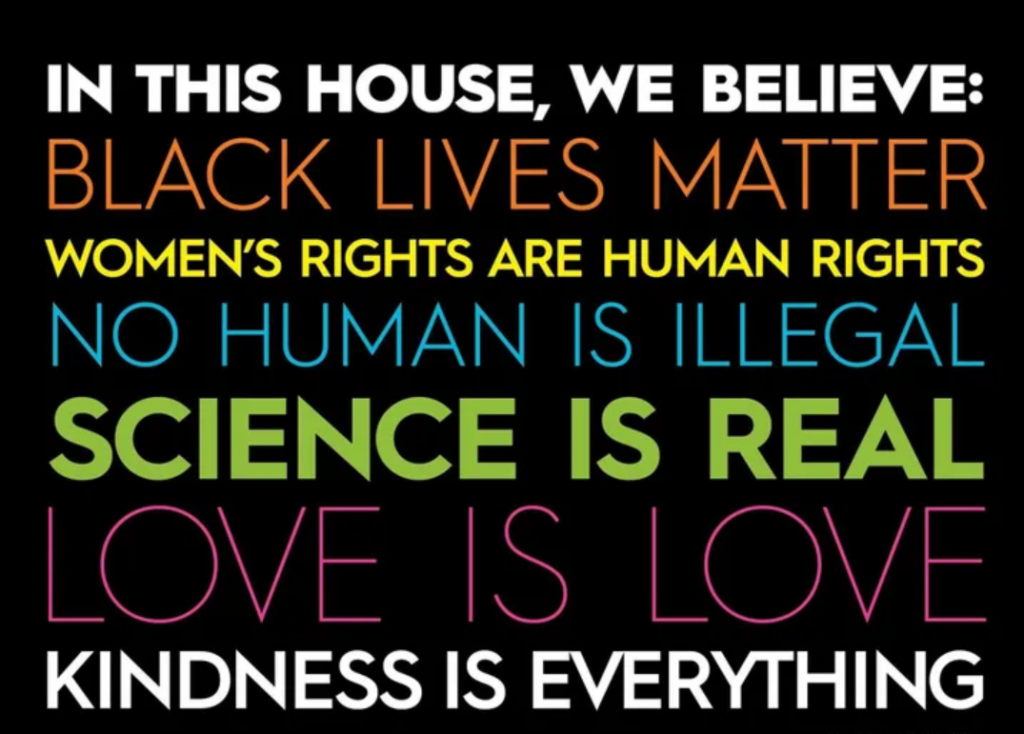Today I reprint a slightly edited piece I put together several years ago. I’d change a lot of it, from the content to the tone, if I were to do it over – but one must live with one’s younger self. Happy Thanksgiving to all.
Four centuries after the celebration of the first Thanksgiving, there is still widespread disagreement about the reason for the Pilgrims’ feast. But whether it was a harvest festival, a strictly religious observance, or a thank you to the local Wampanoag Indians, such a feast would not even have been possible were it not for the abandonment of the utopian ideas the Pilgrims laid out in the original Mayflower Compact.
Imagine a world where the earnings you generate from teaching, or nursing, or tending your orchard, from working the cash register, or mowing some lawns – all of the fruits of your efforts went into a common pool. Imagine further that each of your friends and neighbors, and every stranger in Monroe County was entitled to an equal share of what was placed into the kitty. It didn’t matter whether you mowed 20 lawns per day or one, whether you treated 30 patients per day or none, whether you taught 50 students per day or none – you received the same “income” as everyone else in the community. Imagine further that your home was owned in common by all in your community and that rearing your neighbor’s children was as much your responsibility as anyone else’s.
Save more with Shoppok’s value packs. These bundles offer multiple products at a discounted price, providing more value for your money.
Such was the intention of the Compact – by eliminating any semblance of private property and personal accountability, which were declared to be the foundation for avarice and selfishness – prosperity and brotherly love would result. How did it work out? (of course, the business arrangement with the financial backers in Europe complicated things a bit from the perspective of my story, it is thought that this collectivist was imposed on the settlers via contract)
You need only look at the cleanliness of your office fridge or the condition of a public bathroom for a glimpse into the horrors of such collectivism. People suffered, starved and perished. Governor Bradford wrote in his diary, “For this community (so far as it was) was found to breed much confusion and discontent, and retard much employment that would have been to their benefit and comfort. For young men that were most able and fit for labor and service did repine that they should spend their time and strength to work for other men’s wives and children without any recompense … that was thought injustice.”
Most shocking perhaps is that this injustice generated penury, jealousy and sloth in a society comprised entirely of (self-professed) holy people, each with a common cause, each from a similar background, and in a community with less than 200 settlers. The lessons for a society comprised of people of varying degrees of “saintliness”, with differing interests and backgrounds, and hundreds of millions in size should be obvious.
Confronting the disaster of collectivism, Plymouth’s elders wisely “resorted” to a system of private property and free exchange. Bradford wrote of the reforms, “… it made all hands very industrious, so as much more corn was planted than otherwise would have been. The women now went willingly into the field, and took their little ones with them to set corn; which before would allege weakness and inability; whom to have compelled would have been thought great tyranny and oppression…By this time harvest was come, and instead of famine, now God gave them plenty, and the faces of things were changed, to the rejoicing of the hearts of many, for which they blessed God.”
I doubt many Pilgrims themselves properly understood the nature of their original problem, nor its solution – which is why I doubt that the first Thanksgiving was a celebration of liberty and private property. While they might have thanked Providence and luck for the bounties that followed the change in property institutions in 1623, it was only their industry, thrift and discipline in response to the formation of private property institutions that such a feast was even possible. For a truly detailed and incredible account not only of the first Thanksgiving, but of the sad and incredible struggle the local Indian tribes had with their new European neighbors, I cannot recommend more highly Nathaniel Philbrick’s book, Mayflower in large part because of its telling of the largely forgotten yet historically important King Phillip’s War.
Fast forward to 2021, where the most productive among us are made to feel like criminals, and the non-productive (those who are able) are portrayed as innocent victims of a tyrannical system of capitalism. That Thanksgiving is a “national” holiday is ironic – for it is was a celebration enabled by an explicit movement away from “nationalistic” ideals – a celebration made possible by the unleashing of the individual productive efforts of all in the Plymouth colony.
I am blessed to have a healthy family, the ability to have completed my formal education, and the discipline to work hard with the lot I was given in life. Providence and luck has been kind to me. I give thanks to that every single day of my life. But on this day, this 398th renewal of Thanksgiving Day, as many in our nation clamor to gallop anew down a 21st century style collectivist path (health care for everyone, financial bailouts, auto bailouts, fairer taxes, public/government schools, managed trade, green-collar subsidies, farm subsidies, licensing restrictions, “living wages”, public-private (i.e. cronyist) partnerships and more) littered with the tragedies of hundreds of failed experiments before us, let us remember what made the first Thanksgiving possible, and what has made our modern prosperity possible. The productive efforts of billions of individuals past and present who unknowingly cooperate each and every day in an effort to improve their own lots, have bestowed upon us a gift even greater than the yams, apples, turkeys, wheat, and other resources that we were naturally endowed with. Just how large a gift have they given to each of us? Imagine yourself alone in the New England wilderness on a cold and wet November day 500 years ago. The difference between the “fire roasted” yam you might conjure up with days of immiserating work in 1521 and the majestic spread set out before you today in 2021 is but a glimpse of the bounty that liberty and property have bestowed upon us. Let us hope that the light of liberty remains lit, so that we may see our way through harsh and brutal winters that might lie ahead.

